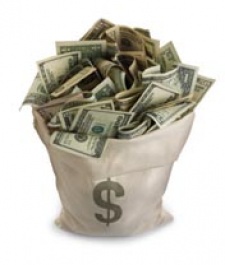Some corners of the PR industry have always had a reputation for pulling dirty tricks as they seeks to enhance the reputation of their clients.
Indeed, over the weekend MobileCrunch wrote an interesting story accusing US PR company Reverb Communications of offering its clients a service that allegedly saw interns writing positive reviews on the App Store when their iPhone games were released.
It's hardly illegal, and many hard-nosed businessmen might find the wild-eyed attitude of journalists to such practices amusingly naive.
Another step into the grey morass that lies between unscrupulous and downright dishonest, however, is the news that some companies are offering iPhone developers what's effectively a chart-rigging service.
Pay for position
One developer, speaking to PocketGamer.biz on the assurance of anonymity, said he'd been approached by more than one outfit who claimed they had a network of people who could be hired to buy iPhone games in order to ensure a Top 100 chart place at launch.
This sort of thing used to be rife in the UK music industry, as a small number of shops were used to generate national chart statistics. In this way, one record sold in a chart return shop would be multiplied up to provided a national overview.
This led to massive manipulation of the system as record companies bought all the copies of their band's single from such shops, ensuring a high chart position. It also ended up destroying the chart as a useful measure of popularity.
The App Store isn't open to such blatant manipulation, of course. Here the method is much more about brute force; well, cold, hard cash.
The maths is actually fairly simple.
For example, using figures provided by Firemint for its game Flight Control, the only countries where you regularly have to sell over 1,000 units daily to get the #1 position are the US (anywhere between 13,000 - 20,000), the UK (around 3,000), Canada, Germany, France (each around 1,000).
For many smaller countries, a couple of hundred daily sales can gain you the #1 slot.
In this way, a war chest of around $10,000, correctly deployed, should be able to gain a 99c game a solid Top 100 launch, especially combined with decent PR and targeted Facebook advertising.
And what's really sweet about the deal is that 70 per cent of the money goes back to the developer through the standard App Store business model.
Of course, we don't know how much it costs to secure such chart-rigging services - our source was too ethical to get involved.
Upfront costs would quickly escalate too when you're dealing with more expensive games. Perhaps that's why some games launch at a low introductory price, which increases after a couple of weeks?
But with little transparency concerning how developers and publishers can gain featured game slots on the App Store, it's easy to see why they would be tempted to get involved in such guerilla operations.
What would be really interesting to know is whether Apple tracks such activity.
For example, PocketGamer.biz has heard rumours that some companies get their employees to buy and comment on their games at launch.
Presumably it's not beyond the wit of Apple to log the IP addresses of App Store purchasers and reviewers to check whether its meritocracy is being unbalanced by huge spikes from certain locations.
We'd hope it would take a very dim view on the manner.
Can you buy your way to launch week App Store success?
Shadowy companies say they have the manpower if you have the cash






















